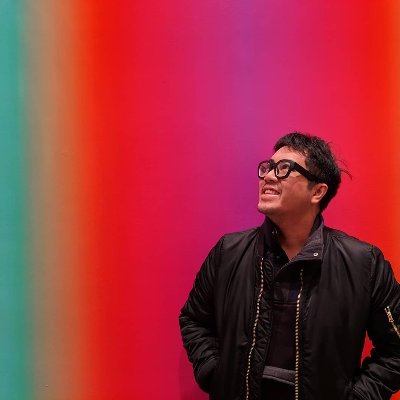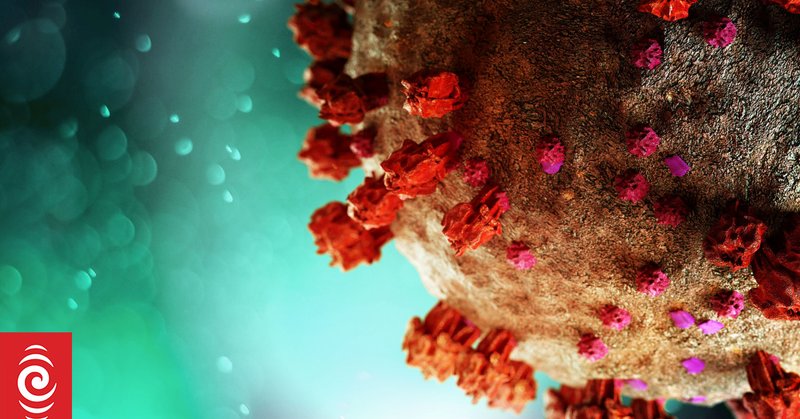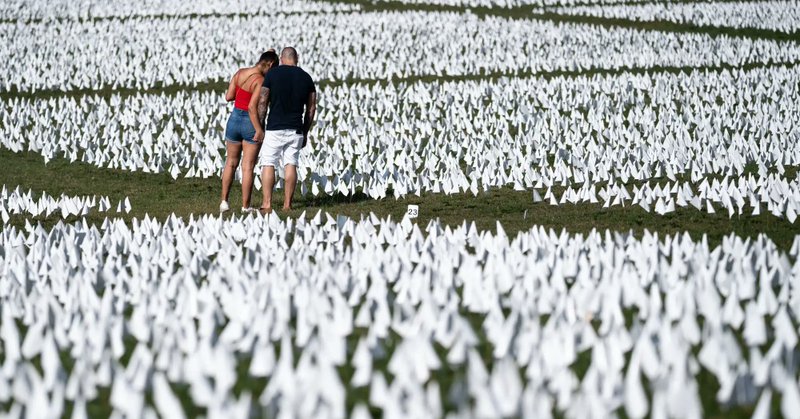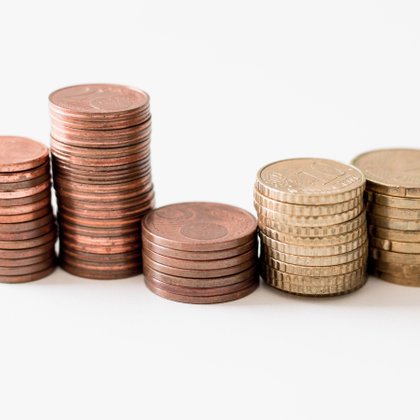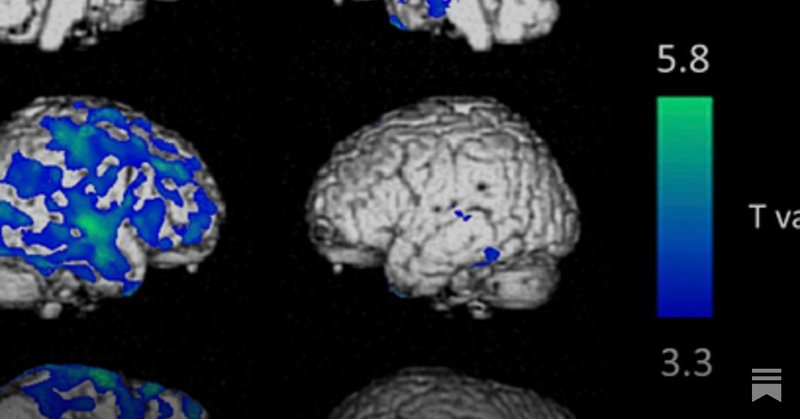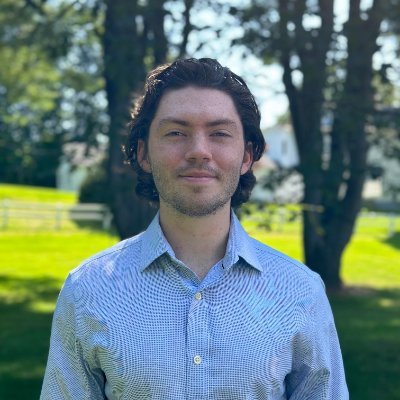
Gregory Kirchoff
@gckirchoff
Followers
553
Following
4K
Media
12
Statuses
128
Microbiology graduate - software engineer - former EMT - quail farmer - Peer to Public
Joined January 2021
I'm excited to announce the launch of https://t.co/cGjPk7LSV9, now live with the invaluable help of @arijitchakrav. We aim to translate scientific concepts surrounding COVID-19 into actionable insights through interactive data visualizations.
3
32
76
This is what public health should look like when addressing a novel disease that has impacted so many and whose impact will continue to grow without intervention.
“We are told by leaders that we are the future. But when it comes to the ongoing pandemic, our present is being stolen right in front of our eyes.” Incredible speech by Violet Affleck who warned about COVID & Long Covid, & advocated for masks & clean air at the UN today!
0
0
2
I'm going to try to change your perspective on COVID in under 2 minutes and I'm going to use this tweet as a springboard.
I see a ton about long covid from legitimate, scientific sources that if it was even remotely true would have apocalyptic implications, everyone’s heart, lungs, and brain failing at once, and I can’t square it with the world I actually observe every day.
134
3K
6K
You want to decide how to act based on analyzing an asteroid's trajectory, not from later assessing the fallout of its impact.
1
0
6
"This ongoing development means that COVID damage can interfere with normal lung maturation processes in ways that might not become apparent until years later." This is important because we needed and continue to need to address this risk using data we don't want to wait for.
“Adolescent lungs are still developing well into the teenage years, with critical growth phases occurring during the exact age range when many students experienced COVID infections.” Most people treat their kids like luggage, so none of this is relevant. https://t.co/hF9UuJhnq7
1
3
22
The best way to prevent Long COVID is to prevent getting COVID-19 or getting it multiple times. Wear a well-fitting mask, especially when indoors among crowds, and stay up to date with your COVID-19 vaccinations. Learn more: https://t.co/GLnfog0jBR
37
388
907
Long Covid warning: 'Silent organ damage is a real problem'
rnz.co.nz
Experts are urging the government to protect people from Long Covid, which they say could have already affected a quarter of a million New Zealanders.
0
1
2
This is also why I'm not the biggest fan of arguing to care about Long COVID *because* of its economic effects. Because if we do, then does the other side darkly have "a point" when it comes to things like this? COVID is a humanitarian issue - life has no price.
0
2
20
Even if you choose to dismiss the long-term effects of COVID, claiming the pandemic was "overblown" from the start is simply incorrect - despite what some newly appointed figures in the United States now suggest.
1
1
15
With much of the focus being on the long-term effects of COVID now, I think it's important to remember just how many people died and continue to do so from this disease. https://t.co/hD12ycEqYm
marketplace.org
The National Bureau of Economic Research found the number of deaths was large enough to result in a net increase to the Social Security fund.
1
12
66
Follow these tips to stay healthy this holiday season when COVID-19, flu and RSV are spreading in NYC! 💪 Get your updated COVID-19 and flu vaccines 😷 Wear a well-fitting mask in crowded indoor settings 🧪Get tested 🏠 Stay home if sick More tips: https://t.co/B6U7bSKPVV
86
732
2K
From skydiving to Long COVID, humans struggle to understand and assess risk effectively. In this article, @arijitchakrav and I use the simple analogy of coin tosses to make comparing and understanding risks more intuitive. https://t.co/Oocm5LTScA
peertopublic.com
This post challenges the idea that individuals can fully understand and manage their own risk without proper information, highlighting the dangers of incomplete knowledge in pandemic decision-making.
5
30
65
In addition, I believe the internet is way too saturated these days so I try to lower my quantity footprint and increase my quality footprint by making less-frequent content that adapts to our ever changing world, and updating those instead of posting new things if need be.
0
1
22
The point is: taking precautions, like masking, based on what’s reasonably possible is simply being cautious and responsible.
1
12
42
The phrase is also used to create distance from responsibility. If an engineer makes a plane that instantly crashes or a baseball catcher misses a ball, claiming that the science of Newtonian physics changed doesn't cut it.
1
3
27
The masks drop because turbulence shifts the range of possible outcomes to include worse scenarios. They stay down until the meaningful set of outcomes no longer includes disastrous ones—either through landing or prolonged stability.
1
1
24
If a plane hits turbulence, O2 masks drop as a precaution. The captain doesn’t yell, “We’re doomed!” then say, “Oh wait, the science changed. Taking the masks back” after 20 seconds of calm—only to drop them again and repeat the chaotic cycle with every bump.
1
1
23
The phrase, "the science changed" has been used a lot during this pandemic as a polarized, flip-floppy alternative for consistent precautions. This approach reflects more on the competing motives within institutions than genuine scientific shifts, as it rarely applies elsewhere.
1
4
29
Given the evidence for COVID's long term harms ( https://t.co/QPGEkCQrsa), we have to at least include some "bad" outcomes in our bounded predictions. This is where we get to how to act under uncertainty. When bad outcomes are meaningfully possible, you act cautiously.
panaccindex.info
Over 130+ Studies On COVID-19 Effects & Prevention
1
8
30
I don't know exactly how things will play out, so I make my charts flexibly to account for as many outcomes as possible. But because we need to act somehow and the set of all possibilities isn't helpful, we need to bound our predictions within reasonable ranges.
1
2
21
There have been and will be many predictions about this pandemic - both correct and incorrect. As Yogi Berra said, it's tough to make predictions, especially about the future. How then are we supposed to navigate predicting and acting under uncertainty? Flexibly and cautiously.
1
1
21

